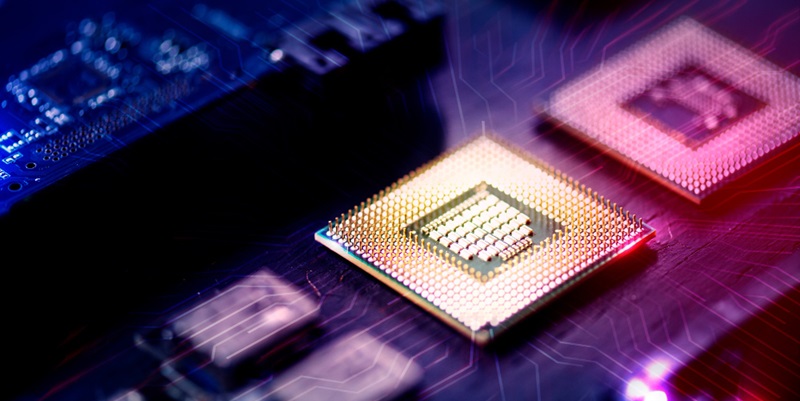The tech world is abuzz with anticipation for Intel’s upcoming Alder Lake processor. As with any new processor release, compatibility with existing sockets becomes a crucial consideration for users planning to upgrade. In this article, we will delve into the details surrounding the compatibility of Alder Lake with LGA 1700 and LGA 1851 sockets. Join us as we explore the dimensions, design changes, and future plans associated with these sockets.
LGA 1700 and LGA 1851 support
The manual for Intel’s Arrow Lake processor (PDF) reveals exciting news for owners of Alder Lake or Raptor Lake builds who are eyeing an upgrade. It states that the processor will support both LGA 1700 and LGA 1851 sockets. This means that those with existing systems built on these sockets can seamlessly transition to Arrow Lake when it arrives next year. The inclusion of support for both sockets is a win for users looking to take advantage of the latest technological advancements.
Dimensions of LGA 1851
To accommodate the increased capabilities of Arrow Lake, Intel has developed LGA 1851—a socket with 151 additional pins compared to LGA 1700. Surprisingly, despite the significantly higher pin count and DDR5 memory support, previous estimations suggest that LGA 1851 will share the same dimensions as its predecessor. This means that users can upgrade to LGA 1851 without worrying about fitting constraints within their current system’s form factor.
Disaggregated Design of LGA 1851 CPUs
What sets LGA 1851 apart from previous sockets is its innovative disaggregated design. Unlike the monolithic design of existing chips, LGA 1851 CPUs will feature a tile-based architecture. This design shift involves dividing the processor into various tiles, each dedicated to specific tasks. This disaggregated approach offers several advantages, including improved performance, enhanced power efficiency, and greater flexibility in chip customization. Intel’s decision to adopt this architectural change is a testament to their commitment to pushing the boundaries of processor technology.
Intel’s plans for socket replacement
Socket lifecycles play a crucial role in determining the longevity and upgradability of systems. Intel’s initial plan is to support LGA 1851 for two years after its release, which is slated for next year. This two-year timeline aligns with Intel’s previous socket support strategies. However, it’s important to note that Intel’s upcoming Raptor Lake refresh may extend this timeline by at least six months or possibly longer, potentially affecting the arrival of Arrow Lake. As with any roadmap, flexibility is key, and users should stay updated for any changes in Intel’s plans.
AMD’s plans for socket support
Coinciding with Intel’s timeline, AMD intends to end support for its existing AM5 socket in 2026. When AMD launched the AM5 socket for their Ryzen 7000 series, they promised that older AM4 coolers would be compatible. Unfortunately, this turned out to be true for only select coolers. While the socket dimensions remained the same, AM5 coolers required a backplate provided by AMD for 100% compatibility. It remains to be seen how AMD will handle socket compatibility beyond 2026.
Speculation on Arrow Lake’s arrival
As eager as we are for the arrival of Arrow Lake, we must exercise patience. Intel’s roadmap indicates that Arrow Lake won’t be available for some time. While the exact release date remains undisclosed, it is evident that Intel is working diligently to bring this much-anticipated processor to the market. We look forward to further information from Intel regarding the release timeline, specifications, and performance benchmarks associated with Arrow Lake.
Possibility of early arrival
Despite the anticipation, there is reason for hope. The fact that Arrow Lake is already listed in current manuals for cooling products suggests that its arrival may be sooner than initially expected. Intel’s inclusion of Arrow Lake in these manuals indicates that they are preparing for its release. This aligns with their previous product launch strategies and gives us confidence that Arrow Lake could arrive earlier than anticipated.
The compatibility of Intel’s Alder Lake processor with both LGA 1700 and LGA 1851 sockets brings assurance to users planning to upgrade from Alder Lake or Raptor Lake builds. Intel’s commitment to supporting LGA 1851 for two years showcases their dedication to offering a stable and upgradable platform. Additionally, with AMD’s plans to end support for their AM5 socket in 2026, users transitioning to Alder Lake will appreciate Intel’s consistent socket support at a time when the processor landscape continues to evolve. As we eagerly await the arrival of Alder Lake, we can anticipate a future filled with exciting performance possibilities and innovations in the world of computing.

